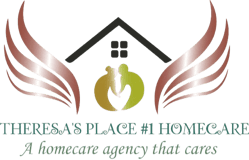Choosing the best home care provider for your loved one in Essex County is a deeply personal decision that requires careful consideration. You’ll want to start by evaluating their specific care needs and daily routines. Explore various home care services and consider the differences between agency and independent caregivers. Understanding costs and ensuring the provider’s qualifications are essential. As you navigate this process, you’ll find that balancing quality care with affordability is just the beginning of the journey.
Assessing Your Loved One’s Care Needs

Understanding your loved one’s care needs is fundamental as you commence on the journey to find a suitable home care provider in Essex County. Start by evaluating their daily activities, medical requirements, and personal preferences. Effective caregiver communication is critical; it guarantees that your loved one’s needs are understood and met consistently. Engage in open dialogues with potential caregivers to gauge their ability to provide personalized care.
Family involvement is also essential. Collaborate with family members to create a thorough care plan that aligns with your loved one’s lifestyle and preferences. Regular family meetings can help in monitoring progress and addressing any concerns promptly. By prioritizing these aspects, you make certain your loved one receives the compassionate and competent care they deserve in their home environment.
Exploring Different Types of Home Care Services
After evaluating your loved one’s care needs, it’s time to explore the diverse range of home care services available in Essex County. You might consider in-home therapies, which include physical, occupational, or speech therapy, customized to improve your loved one’s quality of life without leaving home. If you’re a primary caregiver, respite care offers you a much-needed break while ensuring your loved one receives skilled attention. This service can provide temporary relief, helping you recharge and maintain balance. Personal care services assist with daily activities like bathing and dressing, while companion care focuses on emotional support and social interaction. By understanding these options, you’ll make informed decisions that align with your loved one’s needs and lifestyle, ensuring their comfort and safety.
Understanding the Costs and Payment Options
Steering through the costs of home care in Essex County can seem overwhelming, but breaking it down into manageable parts makes it easier to understand. Start by evaluating what insurance coverage your loved one has. Many policies cover a portion of home care services, which can greatly ease financial burdens. Next, inquire about payment plans offered by home care providers. These plans can help you spread out costs, making them more manageable over time. Be sure to compare different options, as some may offer more flexible terms than others. Understanding these elements helps you make informed decisions, ensuring your loved one receives the best care possible without undue financial strain. Remember, it’s about balancing quality care with affordability.
Evaluating Agency vs. Independent Caregivers
Balancing quality care with affordability often leads to the important decision between choosing an agency or independent caregivers for your loved one’s needs. Agencies offer several benefits, such as thorough screening processes, ongoing training, and a team-based approach to care management. This can provide peace of mind knowing there’s a structured support system in place. However, independent caregivers often bring flexibility customized to your loved one’s specific schedule and preferences, allowing for a more personalized touch. When considering caregiver flexibility, independent caregivers can adjust more readily to changing needs. Ultimately, the choice depends on your priorities, whether you value the structured support of an agency or the adaptable, personal approach of an independent caregiver. Carefully weigh these options to guarantee the best care.
Checking Provider Qualifications and Certifications
When selecting a home care provider, one essential step is checking the qualifications and certifications of potential caregivers. This guarantees your loved one receives the highest standard of care. Certification importance cannot be overstated, as it reflects provider training and competency. To make an informed decision, consider these key points:
- Verify Credentials: Confirm caregivers have the necessary certifications for their roles.
- Check Training Programs: Verify they’ve undergone thorough provider training.
- Inquire About Ongoing Education: See if they participate in continuous learning to stay updated.
- Review Specializations: Identify if they have expertise in specific areas relevant to your loved one’s needs.
- Ask for Proof: Request to see documentation of their qualifications and certifications.
Researching Reputation and Reviews
When you’re considering a home care provider in Essex County, it’s essential to research their reputation and reviews thoroughly. Start by checking their credentials to guarantee they meet your standards and are properly certified. Additionally, seek personal recommendations from friends or family and evaluate the provider’s online presence to gather a well-rounded view of their services.
Checking Provider Credentials
How do you guarantee that you’ve chosen a reputable home care provider in Essex County? Start by focusing on credentials verification and understanding the provider background. This assures the safety and well-being of your loved one. You’re not alone in this process, and several steps can help you make an informed decision:
- Verify Licenses: Check if the provider holds the necessary state licenses.
- Certifications: Look for certifications that indicate specialized training.
- Background Checks: Confirm thorough background checks are conducted for caregivers.
- Years in Business: Consider how long the provider has been operating.
- Professional Affiliations: Membership in professional organizations can signal credibility.
Taking these steps helps you feel confident in your choice, providing your loved one with the best care possible.
Seeking Personal Recommendations
Why should you rely on personal recommendations when selecting a home care provider in Essex County? Personal recommendations often offer invaluable insights into the quality of care a provider delivers. By tapping into your personal networks, such as family, friends, or colleagues, you can gather firsthand experiences that go beyond what a brochure or website might tell you. These trusted opinions can help you feel more confident in your choice.
Additionally, consider reaching out to community resources like local senior centers, support groups, or healthcare professionals. They often have a wealth of knowledge about reputable home care providers in the area. Their recommendations can guide you to providers with a proven track record, ensuring your loved one receives the compassionate, reliable care they deserve.
Evaluating Online Presence
In today’s digital age, evaluating a home care provider’s online presence is essential to making an informed decision. You’ll want to verify they present themselves professionally and are engaged with their audience. Check their website usability does it provide clear information and easy navigation? A well-designed site reflects their attention to detail and customer focus. Social media engagement is another key aspect; it offers insights into how they interact with clients and the community.
Consider these factors:
- Is their website up-to-date and easy to navigate?
- Do they have positive reviews on Google or Yelp?
- Are they responsive to comments and inquiries on social media?
- Do they share informative and relevant content?
- Can you find testimonials or case studies from satisfied clients?
These elements can guide your decision.
Conducting Interviews and Asking the Right Questions to Caregivers

When it comes to selecting a home care provider in Essex County, conducting thorough interviews and asking the right questions is vital. Start by preparing effective interview techniques; make certain you’re comfortable and confident during the meeting. Begin with open-ended question examples like, “Can you describe a challenging situation you handled?” or “What does a typical day look like for your caregivers?” These questions will help you gauge the provider’s experience and approach to care.
It’s important to understand how they handle emergencies and communicate with family members. Ask about their training and certification processes to make sure they meet your loved one’s needs. By being prepared and asking the right questions, you can make an informed decision that guarantees quality care for your loved one.
Monitoring and Adjusting the Care Plan
To guarantee the care plan remains effective, it’s crucial to schedule regular check-in meetings with your provider. These meetings help you assess any changes in care needs and make necessary adjustments promptly. By staying proactive, you can adapt the care plan to meet evolving requirements and maintain the highest quality of care.
Regular Check-In Meetings
Although it might seem intimidating at first, regular check-in meetings are essential for ensuring that the care plan effectively meets your loved one’s needs. Setting a consistent check-in frequency allows you to monitor and adjust the care plan, keeping it aligned with evolving requirements. Make these meetings a priority, ensuring they’re structured and purposeful. During these sessions, gather caregiver feedback to understand any challenges or improvements needed. This open communication fosters a trusting relationship between you and the caregiver, enhancing care quality.
- Decide on a convenient check-in frequency
- Actively listen to caregiver feedback
- Discuss any changes in your loved one’s condition
- Review current care goals and adjust if necessary
- Document discussions for future reference
Assessing Care Needs
Understanding your loved one’s evolving care needs is essential to providing effective support. Conduct regular care assessments to evaluate their physical, emotional, and mental requirements. This proactive approach helps you identify changes in their condition early on. Needs evaluation should include observing daily routines, discussing any discomforts or challenges they face, and consulting with healthcare professionals for insights.
Adapting to Changes
As your loved one’s needs change over time, it’s important to continually monitor and adjust their care plan to guarantee it remains effective and supportive. Being proactive guarantees that both physical and emotional support is aligned with their evolving needs. Consider these steps to facilitate lifestyle adjustments:
- Regularly assess: Schedule consistent evaluations to identify any shifts in health or preferences.
- Open communication: Maintain an ongoing dialogue with caregivers and healthcare providers.
- Incorporate feedback: Listen to your loved one’s input and adapt accordingly.
- Stay informed: Keep abreast of new care techniques and resources available in Essex County.
- Personalize support: Tailor activities and routines to enhance emotional well-being and comfort.
Frequently Asked Questions
What Are the Signs That a Home Care Provider Is Not a Good Fit?
You notice a provider’s not a good fit when there’s inadequate training, poor communication, or inconsistent scheduling. Lack of compassion, unprofessional behavior, and negative reviews also signal issues. Trust your instincts and address concerns promptly.
How Can I Ensure Effective Communication With the Care Provider?
To guarantee effective communication, establish clear communication strategies and set caregiver expectations from the start. Regularly discuss updates, preferences, and concerns. Encourage open dialogue, and make certain you’re both on the same page to foster a supportive environment.
What Should I Do if My Loved One Refuses Home Care Services?
If your loved one refuses home care services, initiate a gentle conversation focusing on their concerns. Emphasize caregiver collaboration and provide emotional support. Highlight the benefits and reassure them of your continued involvement in their well-being.
Are There Cultural Considerations in Choosing a Home Care Provider?
When choosing a home care provider, guarantee they demonstrate cultural sensitivity and address language barriers. This approach guarantees your loved one feels respected and understood, promoting comfort and trust in the care they receive.
How Do I Address Concerns About Privacy and Security in Home Care?
Review the provider’s privacy policies and security measures thoroughly. Ask questions about data protection, staff training, and encryption practices. Confirm they’re transparent and demonstrate a strong commitment to safeguarding your loved one’s personal information.
Conclusion
Choosing the best home care provider in Essex County requires careful consideration and ongoing involvement. Trust your instincts and prioritize your loved one’s needs and preferences. Don’t hesitate to ask questions and seek clarity on any uncertainties. Regularly review the care plan to ensure it meets evolving needs, maintaining open communication with caregivers. A trusted provider like Theresa’s Place Home Care can offer personalized, compassionate support tailored to your family’s unique circumstances. By staying informed and involved, you’ll guarantee your loved one receives high-quality care that aligns with both their needs and your budget.

